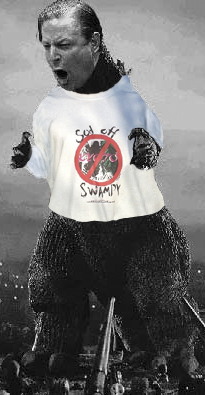Contango Is Complicated?
No, this isn’t a reference to Fausta.
It’s about supposedly smart people, people who are trusted with billions of dollars, investing in things they don’t understand…and then crying when things don’t go so well
Investors have poured billions into exchange-traded funds that attempt to track the prices of raw materials. But when commodities go up, commodity ETFs often don’t.
…An ETF, which can be bought or sold like a stock, attempts to track the price of a particular basket of assets — tech stocks, for instance, or high-yield bonds, or commodities ranging from wheat to gold.
…People who would never think of buying a tanker of crude oil or a silo of wheat could now put both commodities in their 401k’s. Suddenly, everybody was a speculator.
And some were losing big. The commodity ETFs weren’t living up to their hype, and the reason had to do with a word Wolf had never heard. As he browsed the blogs, he says, “I’m seeing people talking about something called contango. Nobody would define it.”
Wolf called his broker and asked about contango. “I don’t know what it is,” he replied.
We have an old saying in the commodity biz (and I suspect lots of other businesses have the same saying): If you want to make a little money in commodities…start with a lot.
Commodities are exceedingly volatile, they always have been, and of late we’ve been blown out of the water because of folks like those above. These large investment funds come in with insane amounts of money and they buy the markets because they want to be “long commodities.” Since they’re used to trading stocks they think that that’s all they need to do but our markets trade differently; our markets are designed to (in theory) convert to the underlying commodity at a point in the not-too-distant future (that’s why they’re called “futures” markets)…which means that unless you want to take actual physical delivery of, say, 200 tons of cotton or 50,000 bushels of Hard Winter Wheat you need to sell that position out and roll it forward. In a “contango” or “carry” market the deferred positions are higher than the nearby. If you trade the physical commodity this is a good thing, a necessary thing, because those higher prices help cover your “cost of carry” for the physical commodity: things like the monthly cost of storage, the cost of insurance, interest charges, etc. But if you are a clueless investment firm this means that when you sell your nearby position and buy the next position forward you are paying a higher price for the new position…and thus losing money.
Obviously, this is someone else’s fault.
“If it wasn’t a rigged game,” he says, “I could figure it out. But it is a rigged game.”
No, it’s not a rigged game.
As with anything: if you don”t understand it, you shouldn’t be in it.

I dunno, I kinda like the idea of some 30-something yuppie invest-bot ending up holding 200 tons of red wheat. I’d dump it on his lawn.
How can this guy not get it? Hasn’t he ever seen “Trading Places”?
“Dude, I just pay someone to do things for me! All I want is the cash. Now, go away, and let me hit my bong again.”
These are the same people at the bottom of a pyramid scheme. They don’t know from “If you can’t pay it, don’t play it,” but they’re really good at the blame carry.
Can you contango at a fandango?